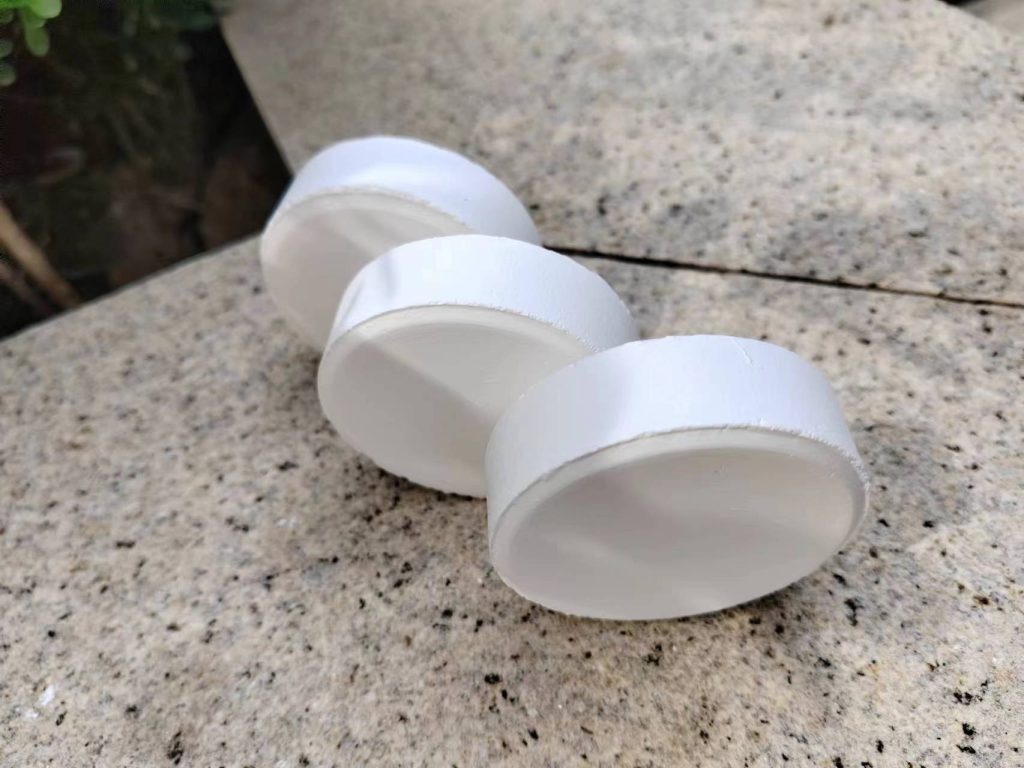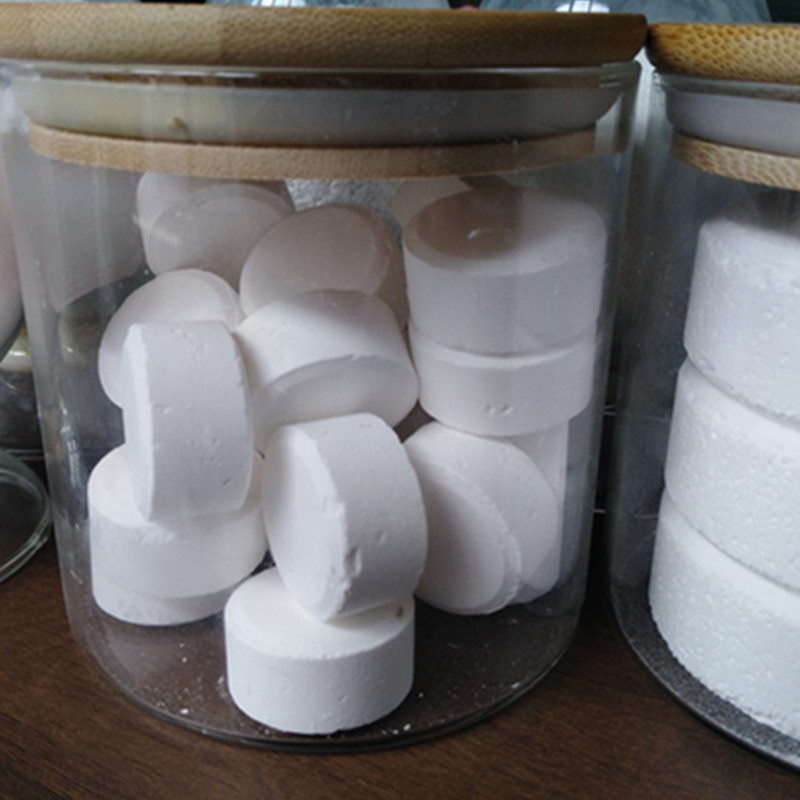The pool during the summer months is a haven where individuals can escape the heat. But if the pool water is not clear, it will not only spoil the mood, but also turn into a health issue. While we splash around in the pool, we may not even be aware that small chlorine tablets quietly safeguard this cooling water through the power of science. So, what have they done in pool maintenance?
I. The core cleaning principle
The popularity of chlorine tablets as the “cornerstone” for pool cleaning is not by chance. Chlorine has been utilized as a water treatment agent dating back to the early 20th century. Through constant improvement, chlorine tablets have emerged as one of the most effective forms because they are stable and effective. The key to their cleaning efficacy is the aggressive bactericidal and disinfectant action. When they are added to the swimming pool, the tablets break down immediately to release hypochlorous acid, which goes into action.
Hypochlorous acid is a powerful oxidant that can penetrate the cell walls of viruses and bacteria. It interferes with their protein structures and even their RNA and DNA, rendering them useless, essentially killing them.
Practically speaking, one example was when a large swimming pool was unable to disinfect on time, and some of the swimmers got conjunctivitis as a consequence. But after the proper application of chlorine tablets, such an occurrence was significantly reduced. These pool pathogens, including Escherichia coli, Staphylococcus aureus, and some bacteria with a propensity to cause skin disease and conjunctivitis, are no match for hypochlorous acid.
II. Multi-dimensional cleaning effect
Aside from its excellent bactericidal action, pool chlorine tablets also possess various applications in cleaning. Sweat, oil, and cosmetics excreted by the human body will form organic impurities in the pool. Not only do these compounds cause the pool water to become cloudy, but they will also reduce the chlorine content in the water, diluting the disinfecting action.
For instance, during the tourist season, since more swimmers were present, the natural pollutants in the hotel pool water increased and became cloudy. Add some chlorine tablets in time, and after a few hours of oxidation and breakdown, the water will become clear and transparent.
As a component of oxidation, chlorine tablets break down organic impurities to maintain the water clear and transparent. Algae, apart from that, can grow at a rapid rate in the proper environment. Once they grow in a pool, the water turns greenish with a terrible odor. Chlorine tablets destroy the cell life of algae by killing them and inhibiting their photosynthesis. This inhibits algae growth at its root, making the water a brilliant, shiny blue.
III. Significant advantages
When compared with other disinfectants, chlorine tablets have some advantages. Their first significant advantage is how easy they are to use. The users need to place an appropriate number of tablets into a floating chlorine tablet dispenser or distribute them evenly along the pool. It is possible even for new users because of the simplicity of the process. For a residential pool, the owner can do the disinfection task himself quite easily by following the instructions provided.
Chlorine tablets have excellent storage stability. They can be stored at room temperature and in dry conditions for a long time without losing their effectiveness or decomposing. It is very convenient for swimming pool managers to stock, as it has the immense advantage of low storage costs. On a cost-effectiveness basis, chlorine tablets truly excel. They not only guarantee a high-quality cleaning outcome but also help in lowering operating costs.

IV. Key points for use
In terms of applying chlorine tablets in the process of disinfecting, various aspects need to be paid keen attention to. First among them is the quantity of chlorine added. Too little and not enough disinfecting and cleaning will be done; too much and the skin of swimmers as well as their respiratory tracts can be irritated.
By rule, residual chlorine concentration in pool water is best kept at between 0.3-1.0mg/L. Also, different types of pools, including children’s pools and adults’ pools, require different residual chlorine concentrations. The residual chlorine concentration should be controlled more stringently, normally 0.3-0.5mg/L for the children’s pools.
The frequency of adding the chlorine tablets must be adjusted flexibly according to the rate of consumption of the pool. Ideally, an appropriate number of tablets should be added every day. This is particularly necessary after heavy usage periods because regular refilling ensures that the residual chlorine level in the water is kept constant. Besides, specialized equipment must be employed to conduct water quality analysis at intervals to check vital parameters such as pH level, residual chlorine concentration, and total alkalinity of the water.
Conclusion
Day and night, chlorine tablets quietly guard swimming pools. By scientific principles, they disinfect water and make it transparent, thus enabling humans to have a cooling summer. Thanks to the gradual advancement of technology, chlorine tablets will be more efficient and eco-friendly, safeguarding the pool water’s beauty and people’s health.
As a professional manufacturer and supplier of pool cleaning chemicals, we maintain strict quality standards at every stage of production to guarantee product performance and safety. We also provide customized solutions and technical advisory services. If you are seeking a reliable supplier of chlorine tablets, please feel free to contact us. With affordable prices and quality service, we will assist you in maintaining the optimal water condition in your pool.

 Instant
Quote
Instant
Quote Email
Us
Email
Us